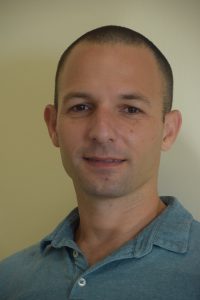
Another technological breakthrough at the Technion!
Ready to break new ground? Take a look at what Professor Shahar Kvatinsky from the Andrew and Erna Viterby Faculty of Electrical & Computer Engineering has been up to with his team.
Using a new type of computer architecture that combines both processing and storage in the same hardware, Professor Kvatinsky and his team have designed a neuromorphic computer chip and taught it to recognize handwriting using deep-belief algorithms.
The chip is based on commercial technology from Tower Semiconductor and has achieved 97% accuracy in recognition while consuming minimal energy.
Used in AI and machine-learning applications, the goal of neuromorphic hardware is to create more powerful and efficient computers that can learn and adapt to new situations.
Together with Tower Semiconductor, the study was led by two researchers in Prof. Kvatinsky’s lab: postdoctoral fellow Dr. Wei Wang and Phd student Loai Danial. The work was also supported by the European Research Council (ERC) and the EU Horizon 2020 Future and Emerging Technologies (FET)-OPEN program.

Professor Shahar Kvatinsky